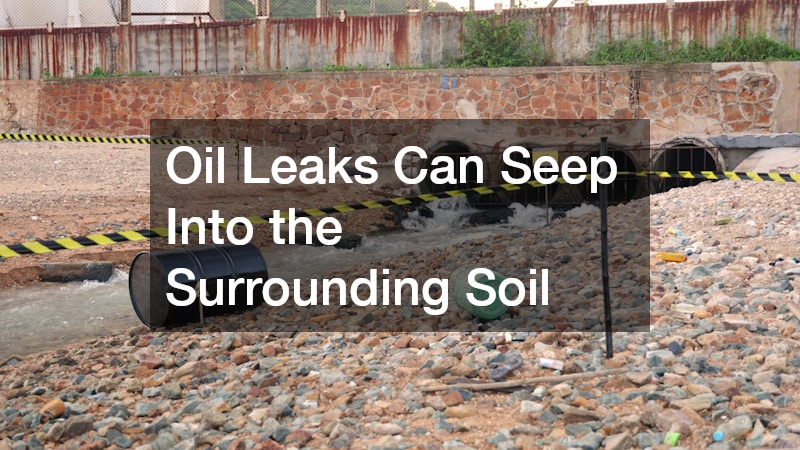Oil tanks, especially older underground units, can pose significant risks to both the environment and property owners if they are not properly maintained or removed. Over time, corrosion, leaks, and spills may occur, contaminating the surrounding soil and even affecting groundwater supplies. Professional oil tank removals are a critical step in protecting ecosystems, reducing hazards, and ensuring that properties remain safe for future use. By addressing these potential dangers early, property owners can take responsibility for safeguarding both their land and the broader environment.
When handled by professionals, oil tank removals go beyond simply extracting a tank from the ground. Certified experts follow strict environmental and safety regulations, ensuring that hazardous materials are disposed of responsibly. This process minimizes contamination, reduces long-term liability for property owners, and creates opportunities for sustainable redevelopment. As environmental awareness continues to grow, taking action through safe tank removal has become both a practical necessity and a meaningful contribution to a cleaner planet.
Reducing Soil and Groundwater Contamination
One of the greatest environmental concerns related to outdated or unused oil tanks is soil and groundwater contamination. When tanks corrode, oil leaks can seep into the surrounding soil, creating long-lasting damage that is difficult and costly to reverse. Contaminated soil not only reduces the land’s usability but also poses risks to human health and wildlife. Protecting water sources is equally important, as leaking tanks can cause pollutants to spread through groundwater and enter nearby rivers, lakes, or even drinking water supplies.
Professional removal services address these risks by carefully decommissioning and extracting tanks before they fail. Specialists test soil conditions, check for leaks, and remediate contaminated areas as necessary. This proactive approach helps ensure that harmful substances are identified and managed before they cause widespread damage. By investing in removal today, property owners are also preventing expensive cleanup projects and protecting community water resources for years to come.
Improving Air Quality and Local Ecosystems
While underground tanks mainly affect soil and water, their leaks can also release harmful vapors into the air. These emissions degrade air quality and contribute to environmental pollution. Over time, ecosystems surrounding leaking tanks may be exposed to chemical imbalances that disrupt plant growth and harm local wildlife. Taking steps to eliminate these risks through safe tank removal plays a role in maintaining healthier ecosystems and cleaner air for communities.
When professionals remove and dispose of oil tanks, they handle vapors and residual fuel using specialized equipment that prevents harmful chemicals from escaping into the atmosphere. This ensures that toxic fumes do not linger around properties or infiltrate indoor spaces. By eliminating potential sources of air pollution, professional removal not only safeguards environmental quality but also reduces risks of respiratory issues for people and animals living nearby.
Supporting Safe Property Redevelopment
Unused or abandoned oil tanks can create barriers to property redevelopment. Potential buyers, developers, or even financial institutions often view the presence of underground tanks as a liability. Beyond environmental hazards, these tanks may cause legal and regulatory challenges that stall construction or property improvements. Removing them not only reduces environmental risks but also paves the way for safe and productive land use.
With the tanks removed, properties become more attractive for residential, commercial, or industrial projects. Environmental inspections can be passed with confidence, allowing redevelopment plans to move forward without delays. In many cases, landowners find that professional removal increases property value by eliminating uncertainty and ensuring compliance with environmental standards. The process opens the door for greener, more sustainable development opportunities that benefit both owners and communities.
Promoting Sustainable Waste Management
Oil tank removals are not just about extracting tanks from the ground; they also involve managing the waste in an environmentally responsible way. Old tanks may contain residual oil, sludge, or rusted metal, all of which must be handled carefully. Improper disposal could lead to more pollution, while sustainable management reduces harmful impacts on the environment. Recycling and proper disposal of these materials support a circular economy by minimizing waste.
Professional services ensure that oil and metal are separated and processed in compliance with environmental regulations. Often, parts of the tank can be recycled, reducing the need for new raw materials. Waste oil is also safely treated and processed rather than being discarded improperly. These practices highlight how professional removal contributes to broader sustainability goals by turning potential hazards into opportunities for responsible recycling and resource recovery.
Enhancing Community Health and Safety
Old oil tanks pose risks not only to the environment but also to the health and safety of communities. Contaminated soil, groundwater, and air can all expose people to hazardous substances that may cause long-term health issues. Leaks or spills left unchecked can create unsafe living conditions, impacting families, neighborhoods, and nearby businesses. By ensuring that tanks are safely removed, communities benefit from healthier surroundings and reduced exposure to pollutants.
Beyond health risks, oil tanks can present physical safety hazards such as structural damage or even fire risks if residual fuel is left behind. Professional removal eliminates these dangers by addressing both environmental and safety concerns. Communities gain peace of mind knowing that properties are secure and free from potential hazards. This creates a safer, cleaner environment where residents can thrive and local ecosystems can recover naturally.
Professional oil tank removals are far more than a property maintenance task; they are a commitment to environmental responsibility, safety, and sustainability. By preventing contamination, improving air and water quality, and ensuring safe redevelopment opportunities, removal services contribute to healthier communities and a cleaner planet. The process also supports sustainable waste management practices, turning potential hazards into recyclable materials that reduce overall environmental impact.
As awareness of environmental stewardship grows, choosing professional removal is a proactive step toward protecting both private property and shared natural resources. It is a long-term investment that safeguards the health of people, the strength of ecosystems, and the value of land. Ultimately, professional oil tank removals reflect a dedication to building safer, more sustainable communities for the future.

